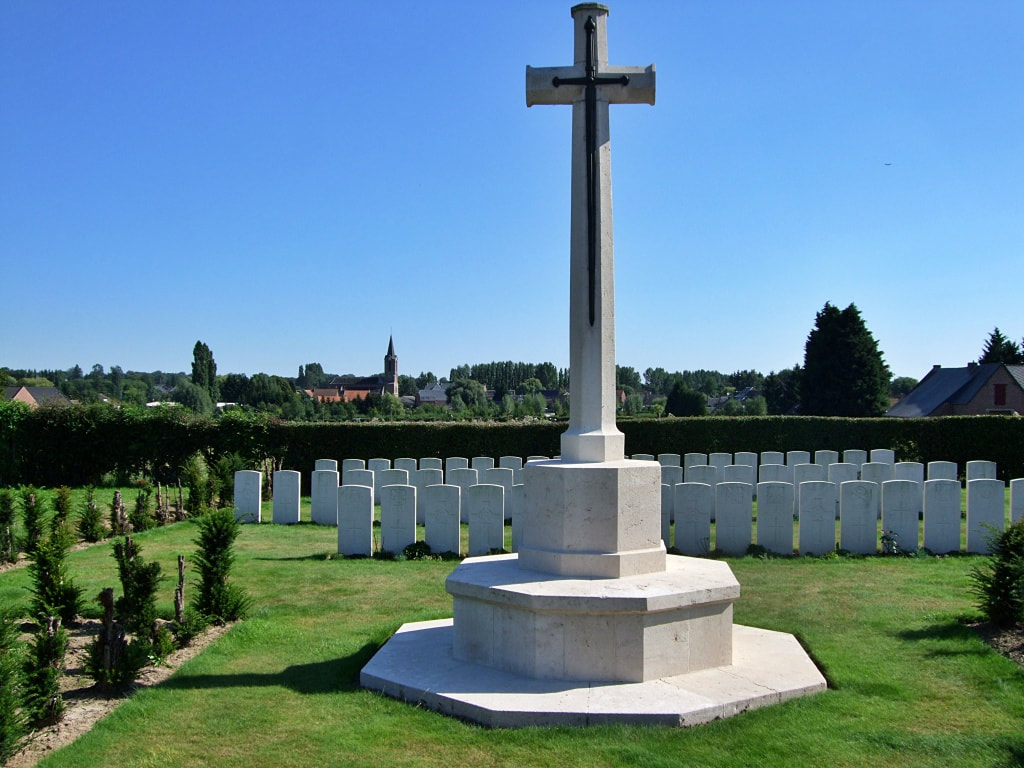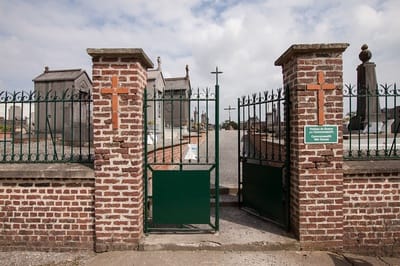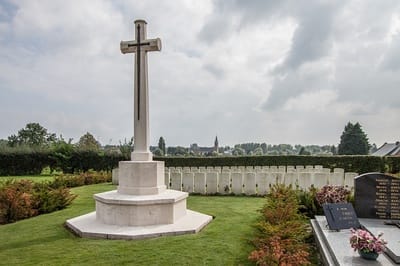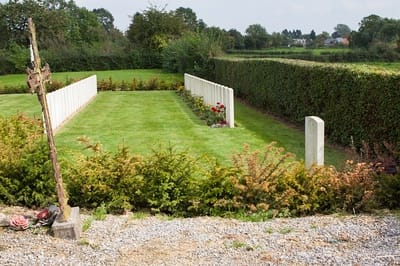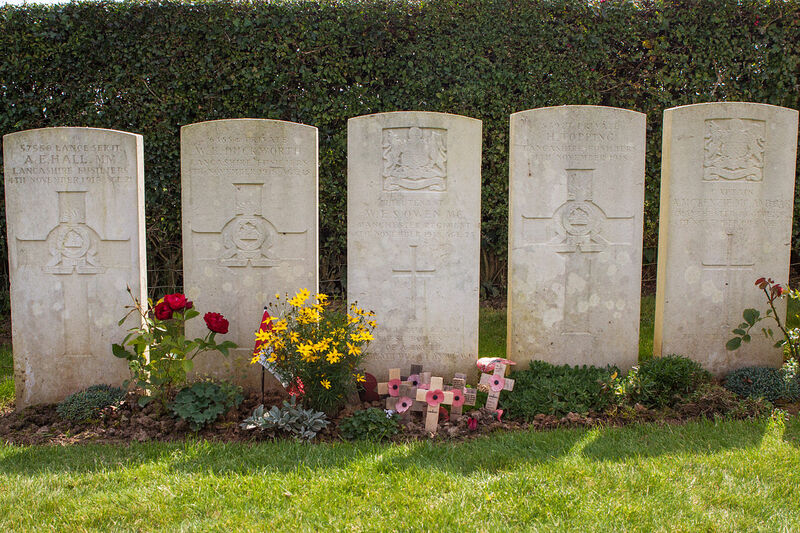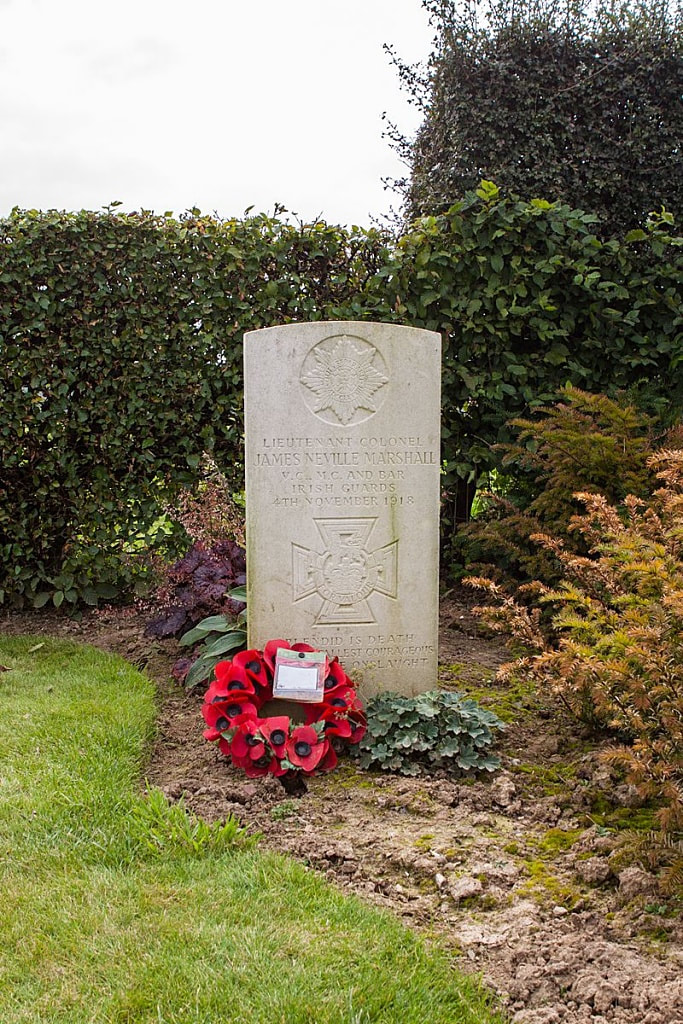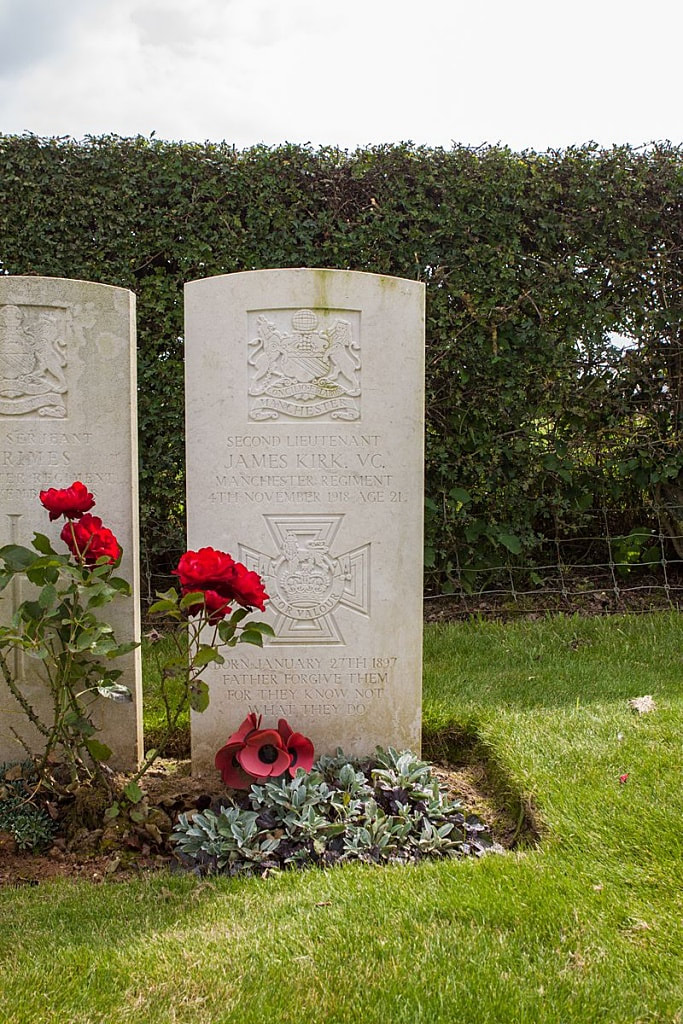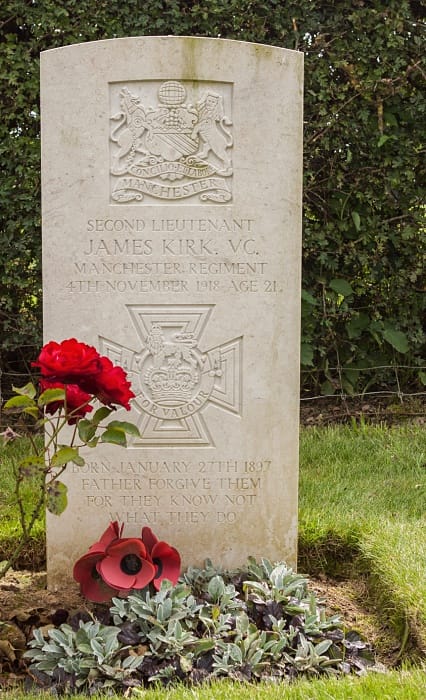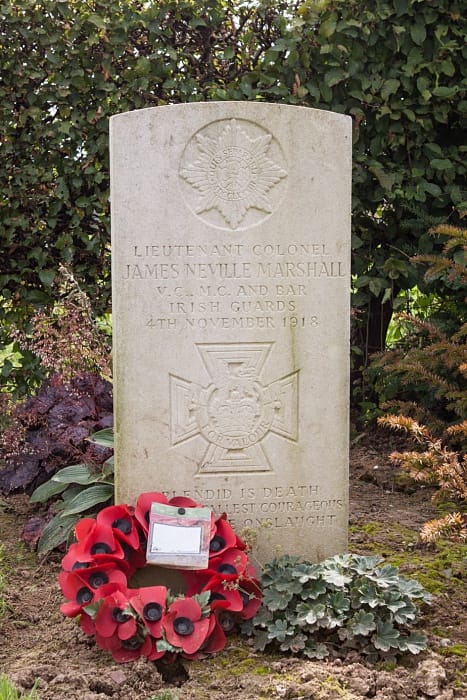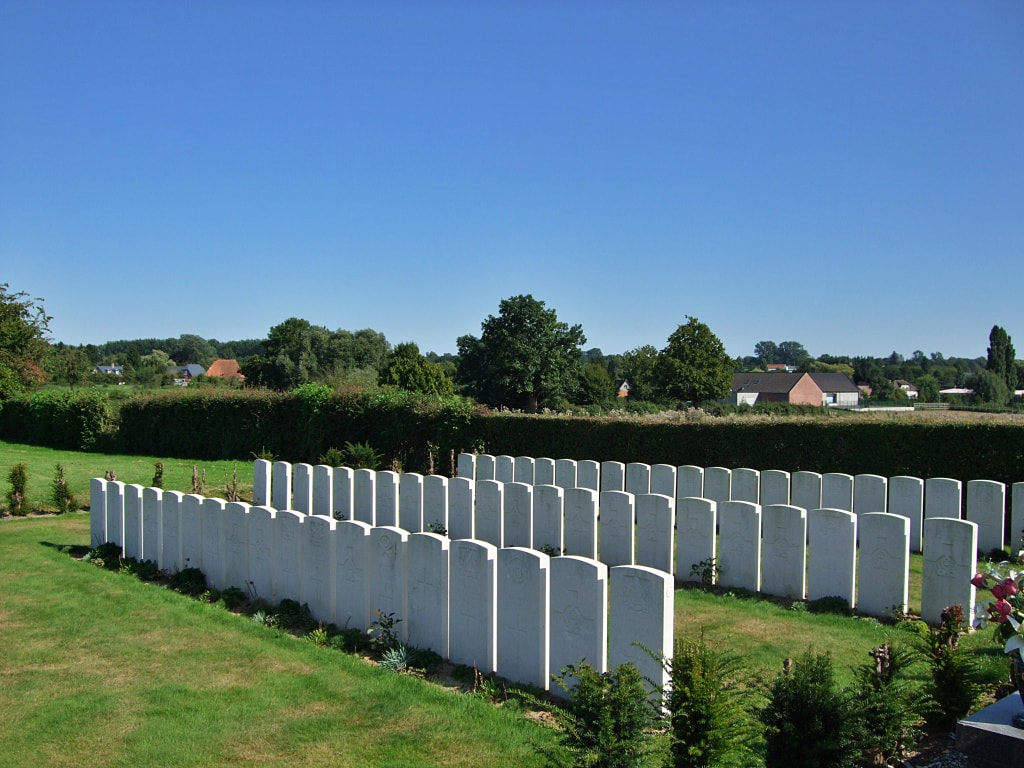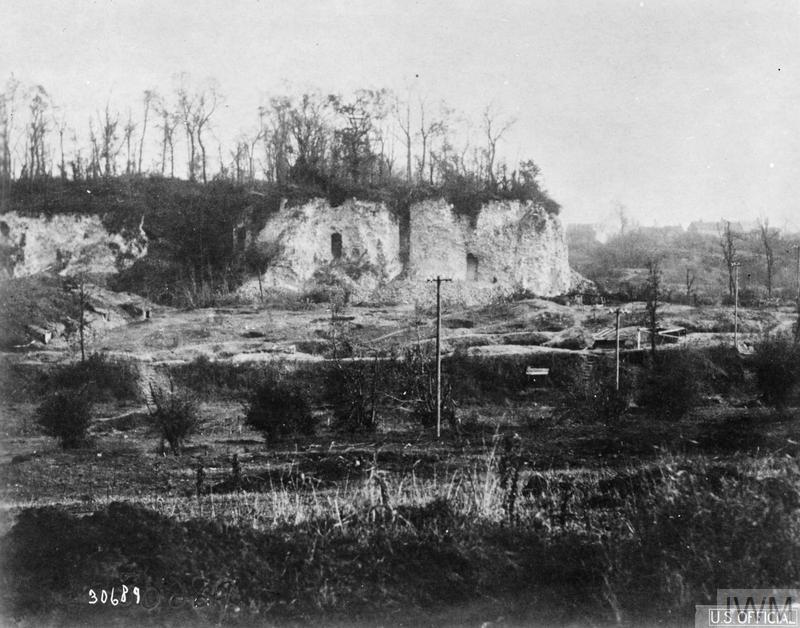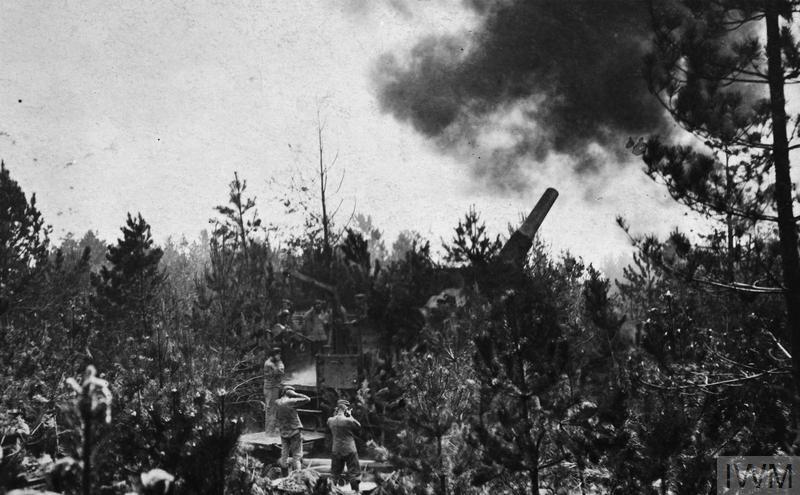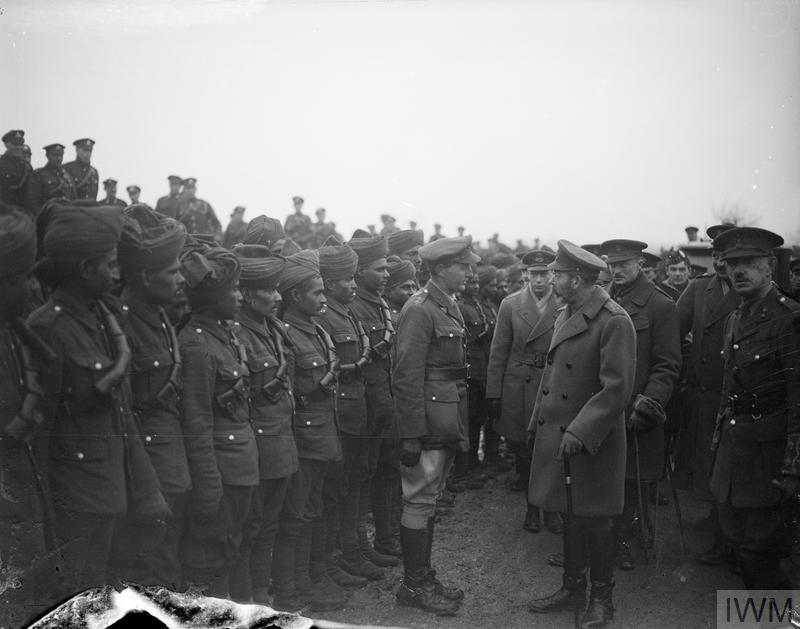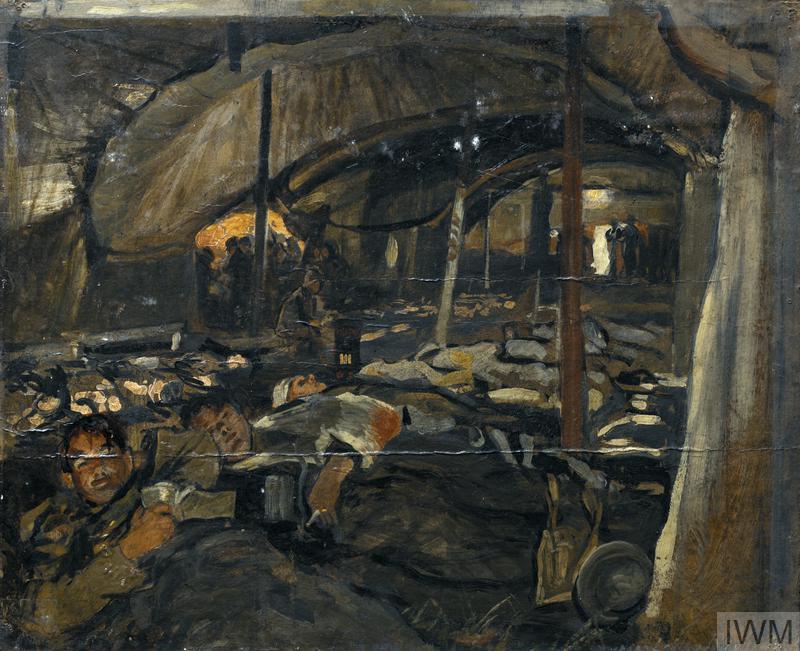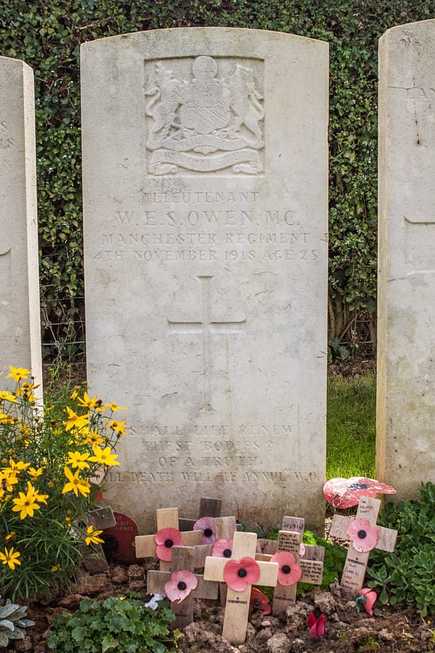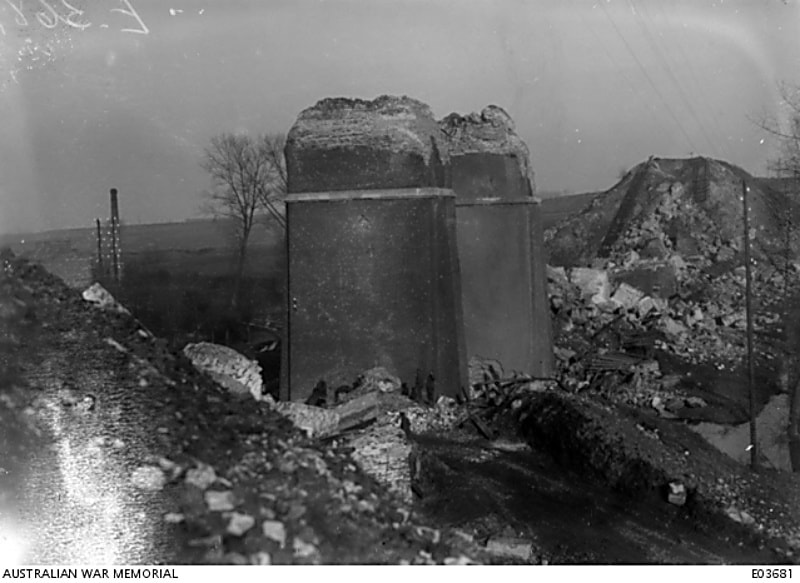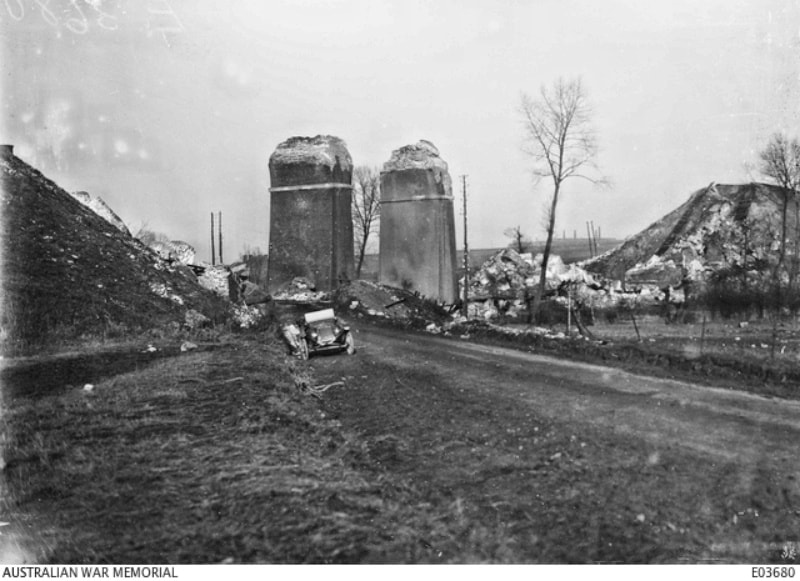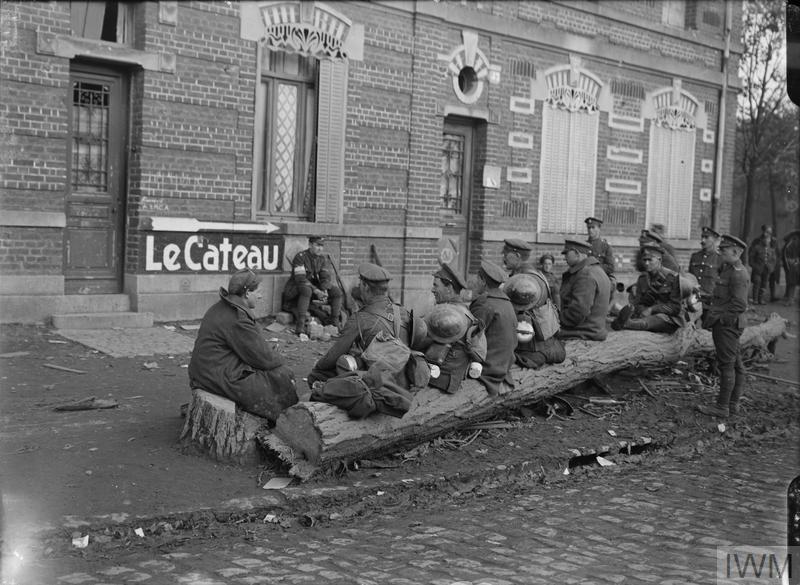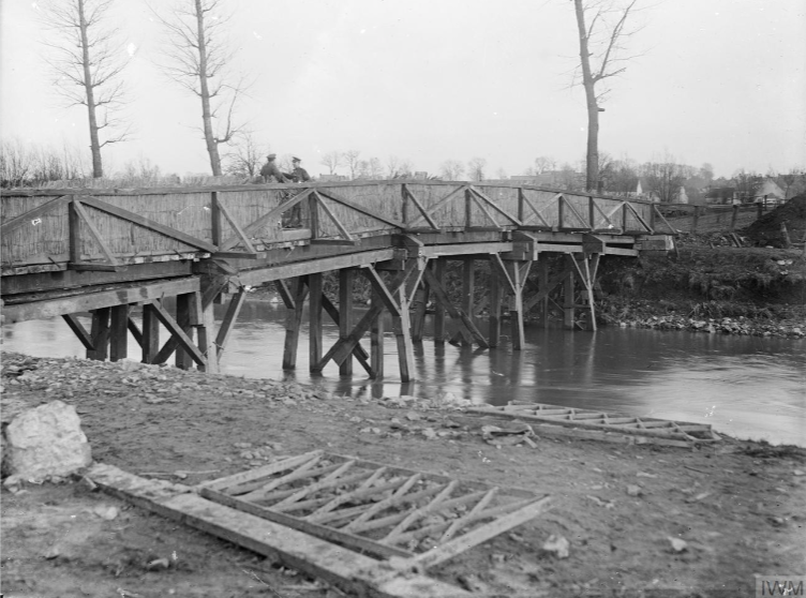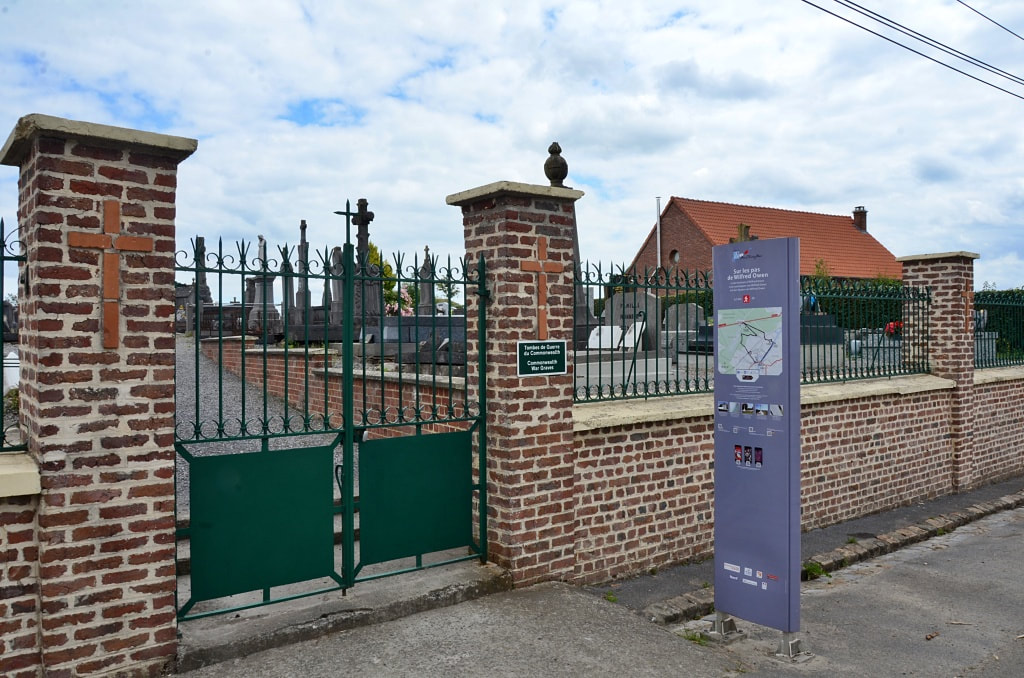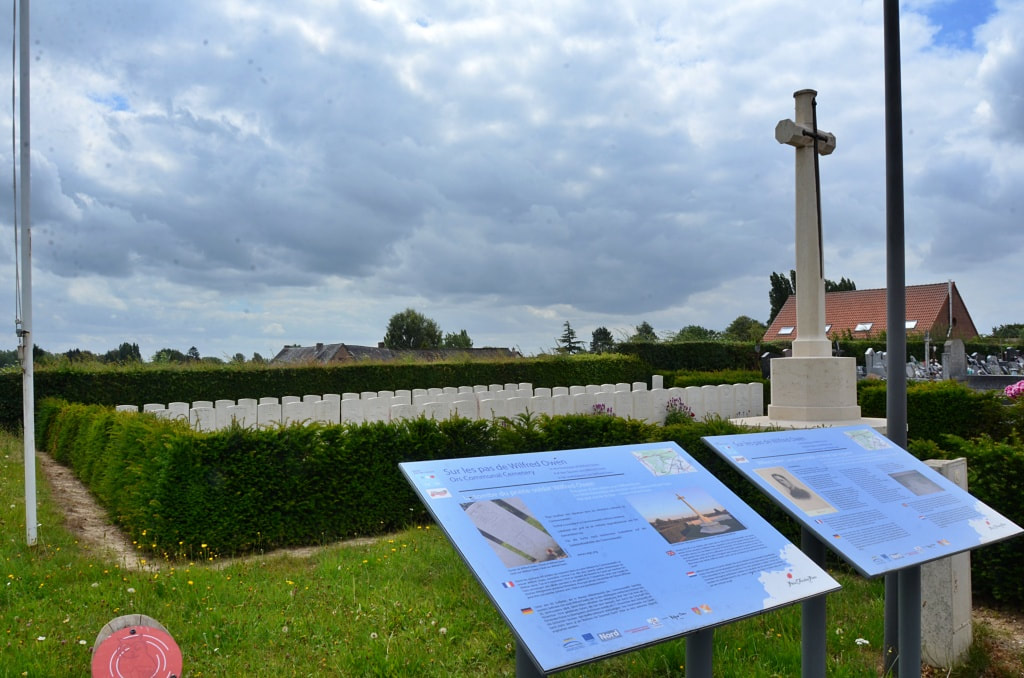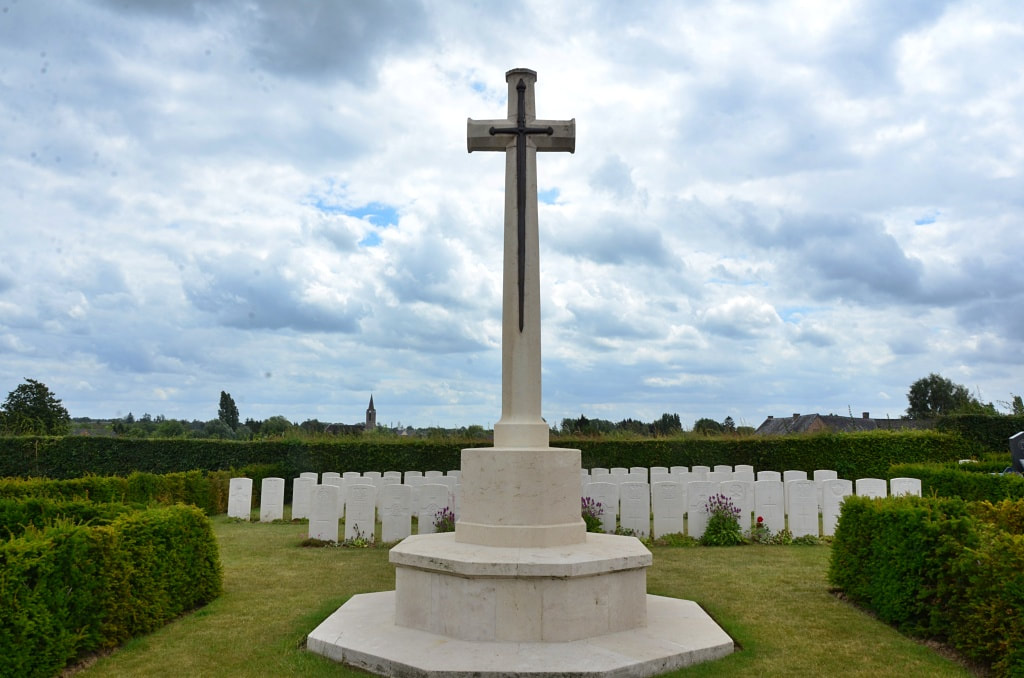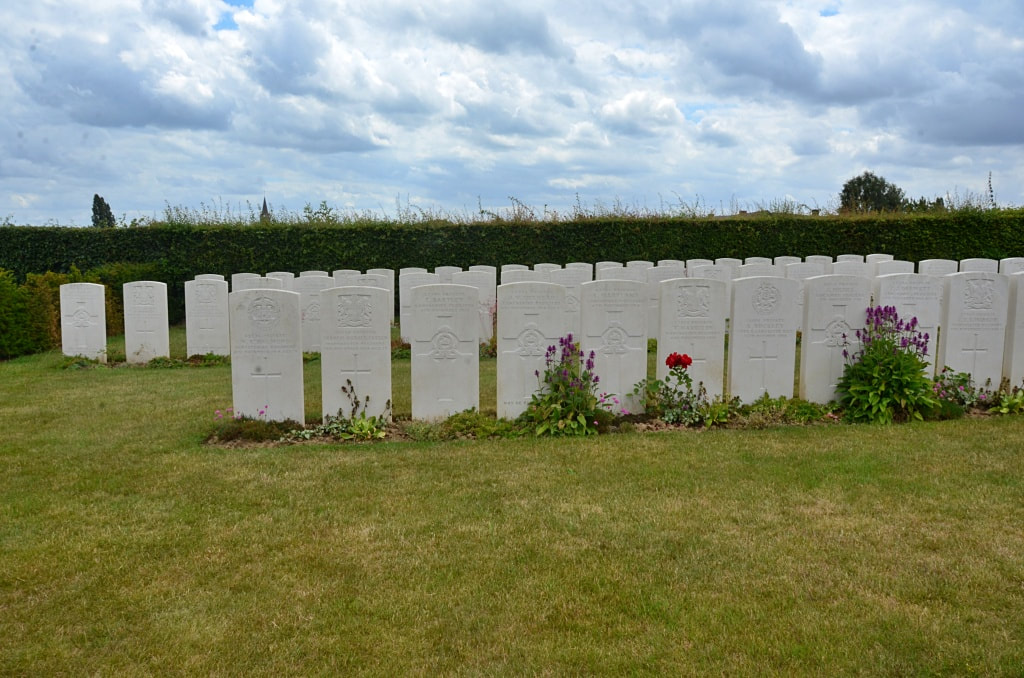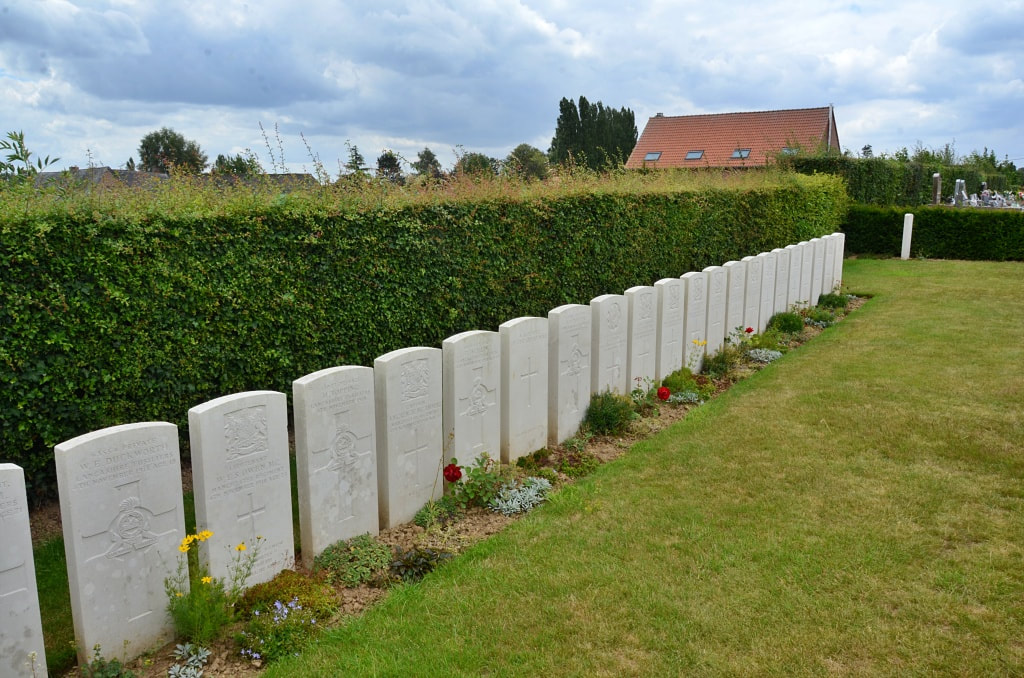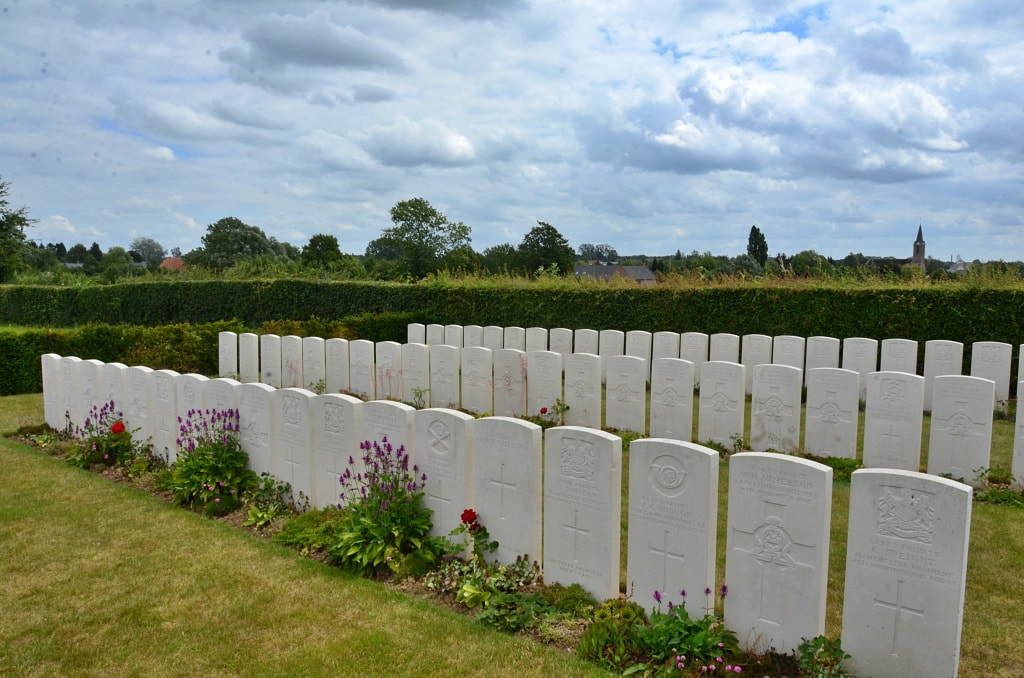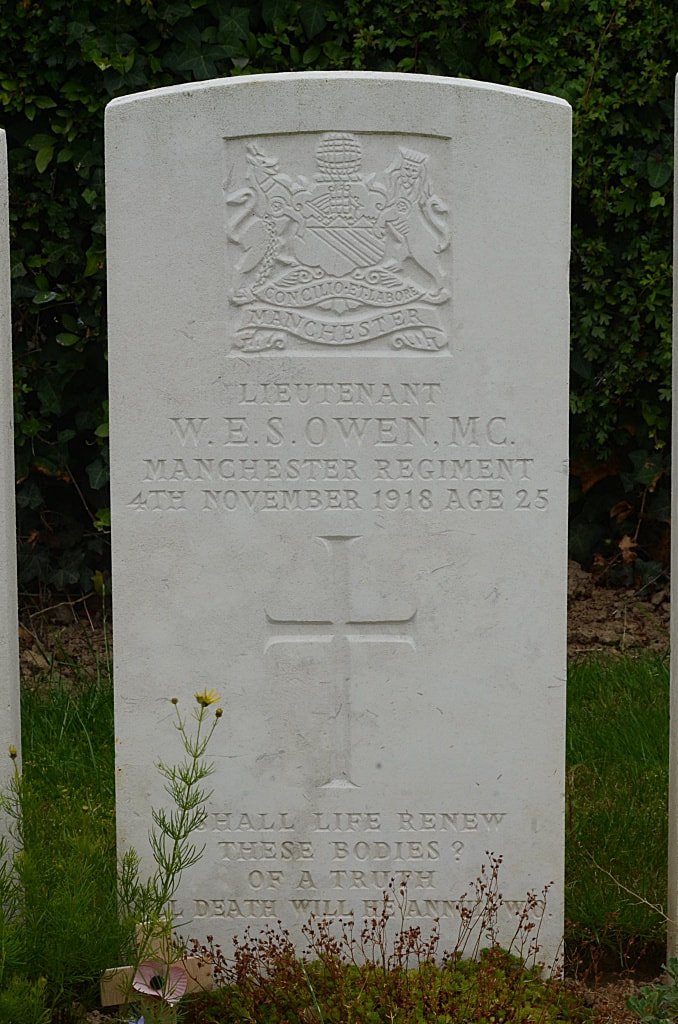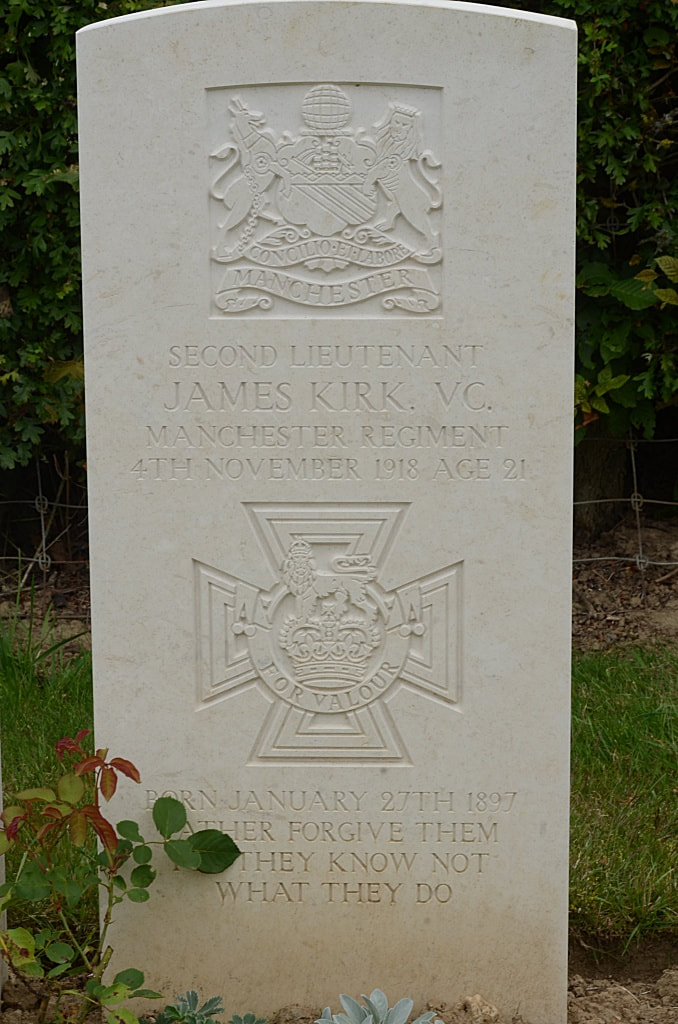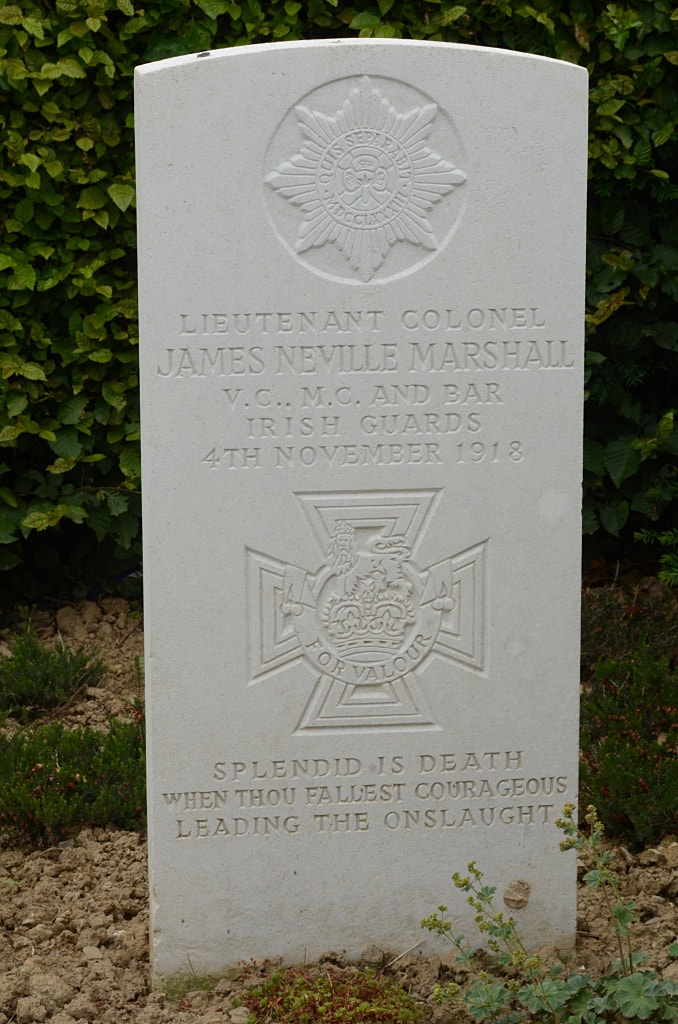ORS COMMUNAL CEMETERY
Nord
France
GPS Coordinates: Latitude: 50.10279, Longitude: 3.62758
Location Information
The village of Ors is between Le Cateau and Landrecies. The Communal Cemetery lies to the north-west of the village. It should not be confused with Ors British Cemetery which is 1 kilometre north-east of the church.
Visiting Information
The location or design of this site makes wheelchair access impossible.
The register is available in the Mairie on Monday ; Wednesday ; Thursday and Friday from 8.30 to 16.00 and Saturday from 11.00 to 12.00
Historical Information
Ors was cleared by the 6th Division on the 1st November, 1918.
There are 63, 1914-18 war casualties commemorated in this site. Of these, 4 are unidentified.
The plot covers an area of 189 square metres.
The Commonwealth plot was designed by William Harrison Cowlishaw
Total Burials: 63.
Identified Casualties: United Kingdom 59.
Unidentified Casualties: 4.
Images in this gallery © Werner Van Caneghem
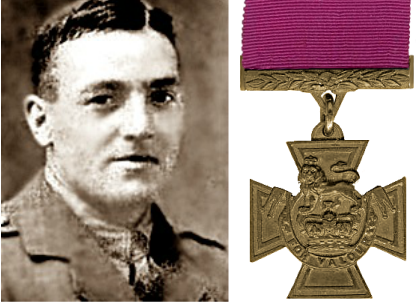
Second Lieutenant
James Kirk, V. C.
10th Attached 2nd Bn. Manchester Regiment
killed in action on 4th November 1918, aged 21.
Row A. 22.
Son of James and Rachel Kirk, of 530 Edge Lane, Droylesden, Manchester. Born at Cheadle Hulme, Cheshire.
His headstone bears the inscription; "Born January 27th 1897. Father Forgive Them For They Know Not What They Do."
Citation: An extract from "The London Gazette," No. 31108, dated 3rd Jan., 1919, records the following:- " For most conspicuous bravery and devotion to duty North of Ors on 4th Nov., 1918, whilst attempting to bridge the Oise Canal. To cover the bridging of the canal he took a Lewis gun, and, under intense machine-gun fire, paddled across the canal on a raft, and at a range of ten yards expended all his ammunition. Further ammunition was paddled across to him and he continuously maintained a covering fire for the bridging party from a most exposed position till killed at his gun. The supreme contempt of danger and magnificent self-sacrifice displayed by this gallant officer prevented many casualties and enabled two platoons to cross the bridge before it was destroyed."
James Kirk, V. C.
10th Attached 2nd Bn. Manchester Regiment
killed in action on 4th November 1918, aged 21.
Row A. 22.
Son of James and Rachel Kirk, of 530 Edge Lane, Droylesden, Manchester. Born at Cheadle Hulme, Cheshire.
His headstone bears the inscription; "Born January 27th 1897. Father Forgive Them For They Know Not What They Do."
Citation: An extract from "The London Gazette," No. 31108, dated 3rd Jan., 1919, records the following:- " For most conspicuous bravery and devotion to duty North of Ors on 4th Nov., 1918, whilst attempting to bridge the Oise Canal. To cover the bridging of the canal he took a Lewis gun, and, under intense machine-gun fire, paddled across the canal on a raft, and at a range of ten yards expended all his ammunition. Further ammunition was paddled across to him and he continuously maintained a covering fire for the bridging party from a most exposed position till killed at his gun. The supreme contempt of danger and magnificent self-sacrifice displayed by this gallant officer prevented many casualties and enabled two platoons to cross the bridge before it was destroyed."
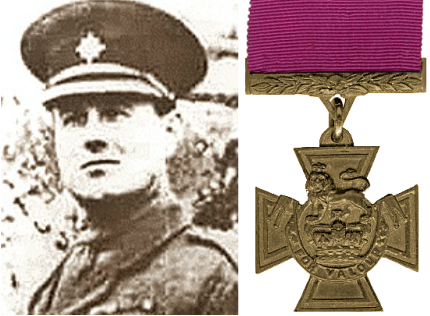
Lieutenant Colonel
James Neville Marshall, V. C., M. C. and bar
Irish Guards attached 16th Bn. Lancashire Fusiliers
killed in action on 4th November 1918 aged 31.
His grave is in line with row A. 22.
Officier Order of Leopold, Chevalier Order of Leopold, Croix de Guerre (Belgium).
Husband of Edith Marshall, of Lascelles Lodge, Matching Green, Harlow, Essex. His headstone bears the inscription; "Splendid Is Death When Thou Fallest Courageous Leading The Onslaught"
Citation: An extract from "The London Gazette," No. 31178, dated 13th Feb., 1919, records the following:- "For most conspicuous bravery, determination and leadership in the attack on the Sambre-Oise Canal, near Catillon, on the 4th November, 1918, when a partly constructed bridge came under concentrated fire and was broken before the advanced troops of his battalion could cross. Lt. Col. Marshall at once went forward and organised parties to repair the bridge. The first party were soon killed or wounded, but by personal example he inspired his command, and volunteers were instantly forthcoming. Under intense fire and with complete disregard of his own safety, he stood on the bank encouraging his men and assisting in the work, and when the bridge was repaired attempted to rush across at the head of his battalion and was killed while so doing. The passage of the canal was of vital importance, and the gallantry displayed by all ranks was largely due to the inspiring example set by Lt. Col. Marshall."
James Neville Marshall, V. C., M. C. and bar
Irish Guards attached 16th Bn. Lancashire Fusiliers
killed in action on 4th November 1918 aged 31.
His grave is in line with row A. 22.
Officier Order of Leopold, Chevalier Order of Leopold, Croix de Guerre (Belgium).
Husband of Edith Marshall, of Lascelles Lodge, Matching Green, Harlow, Essex. His headstone bears the inscription; "Splendid Is Death When Thou Fallest Courageous Leading The Onslaught"
Citation: An extract from "The London Gazette," No. 31178, dated 13th Feb., 1919, records the following:- "For most conspicuous bravery, determination and leadership in the attack on the Sambre-Oise Canal, near Catillon, on the 4th November, 1918, when a partly constructed bridge came under concentrated fire and was broken before the advanced troops of his battalion could cross. Lt. Col. Marshall at once went forward and organised parties to repair the bridge. The first party were soon killed or wounded, but by personal example he inspired his command, and volunteers were instantly forthcoming. Under intense fire and with complete disregard of his own safety, he stood on the bank encouraging his men and assisting in the work, and when the bridge was repaired attempted to rush across at the head of his battalion and was killed while so doing. The passage of the canal was of vital importance, and the gallantry displayed by all ranks was largely due to the inspiring example set by Lt. Col. Marshall."
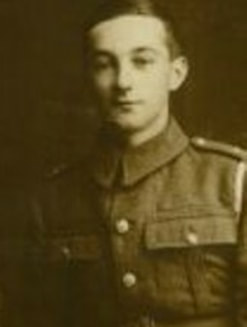
64914 Private
Hugh Melling
16th Bn. Lancashire Fusiliers
4th November 1918, aged 19.
Row A. 6.
Son of Thomas and Alice Melling of Hesketh Lane, Tarleton, Lancashire.
His headstone bears the inscription; "For All Of Us He Did His Best May God Grant Him Eternal Rest."
Picture courtesy of Mary Melling, great niece.
Hugh Melling
16th Bn. Lancashire Fusiliers
4th November 1918, aged 19.
Row A. 6.
Son of Thomas and Alice Melling of Hesketh Lane, Tarleton, Lancashire.
His headstone bears the inscription; "For All Of Us He Did His Best May God Grant Him Eternal Rest."
Picture courtesy of Mary Melling, great niece.
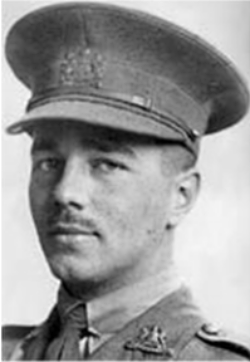
Lieutenant
Wilfred Edward Salter Owen, M. C.
5th Bn. Manchester Regiment
4th November 1918, aged 25.
Plot A. 3.
Son of Mr. and Mrs. Tom Owen, of "Mahim", Monkmoor Rd., Shrewsbury. Native of Oswestry. Enlisted in The Artists' Rifles in October 1915.
His headstone bears the inscription; "Shall Life Renew These Bodies? Of A Truth All Death Will He Annul" W.O."
Commissioned into the Manchester Regiment in June 1916. Was a poet of repute, although during his lifetime, only a few of his poems appeared in print. The 'Atheneum' of December 1919, nominated Owen's work "Strange Meeting" as the finest of the war.
Wilfred Edward Salter Owen, M. C.
5th Bn. Manchester Regiment
4th November 1918, aged 25.
Plot A. 3.
Son of Mr. and Mrs. Tom Owen, of "Mahim", Monkmoor Rd., Shrewsbury. Native of Oswestry. Enlisted in The Artists' Rifles in October 1915.
His headstone bears the inscription; "Shall Life Renew These Bodies? Of A Truth All Death Will He Annul" W.O."
Commissioned into the Manchester Regiment in June 1916. Was a poet of repute, although during his lifetime, only a few of his poems appeared in print. The 'Atheneum' of December 1919, nominated Owen's work "Strange Meeting" as the finest of the war.
Strange Meeting
By Wilfred Owen
It seemed that out of battle I escaped
Down some profound dull tunnel, long since scooped
Through granites which titanic wars had groined.
Yet also there encumbered sleepers groaned,
Too fast in thought or death to be bestirred.
Then, as I probed them, one sprang up, and stared
With piteous recognition in fixed eyes,
Lifting distressful hands, as if to bless.
And by his smile, I knew that sullen hall,—
By his dead smile I knew we stood in Hell.
With a thousand fears that vision's face was grained;
Yet no blood reached there from the upper ground,
And no guns thumped, or down the flues made moan.
“Strange friend,” I said, “here is no cause to mourn.”
“None,” said that other, “save the undone years,
The hopelessness. Whatever hope is yours,
Was my life also; I went hunting wild
After the wildest beauty in the world,
Which lies not calm in eyes, or braided hair,
But mocks the steady running of the hour,
And if it grieves, grieves richlier than here.
For by my glee might many men have laughed,
And of my weeping something had been left,
Which must die now. I mean the truth untold,
The pity of war, the pity war distilled.
Now men will go content with what we spoiled.
Or, discontent, boil bloody, and be spilled.
They will be swift with swiftness of the tigress.
None will break ranks, though nations trek from progress.
Courage was mine, and I had mystery;
Wisdom was mine, and I had mastery:
To miss the march of this retreating world
Into vain citadels that are not walled.
Then, when much blood had clogged their chariot-wheels,
I would go up and wash them from sweet wells,
Even with truths that lie too deep for taint.
I would have poured my spirit without stint
But not through wounds; not on the cess of war.
Foreheads of men have bled where no wounds were.
“I am the enemy you killed, my friend.
I knew you in this dark: for so you frowned
Yesterday through me as you jabbed and killed.
I parried; but my hands were loath and cold.
Let us sleep now. . . .”
By Wilfred Owen
It seemed that out of battle I escaped
Down some profound dull tunnel, long since scooped
Through granites which titanic wars had groined.
Yet also there encumbered sleepers groaned,
Too fast in thought or death to be bestirred.
Then, as I probed them, one sprang up, and stared
With piteous recognition in fixed eyes,
Lifting distressful hands, as if to bless.
And by his smile, I knew that sullen hall,—
By his dead smile I knew we stood in Hell.
With a thousand fears that vision's face was grained;
Yet no blood reached there from the upper ground,
And no guns thumped, or down the flues made moan.
“Strange friend,” I said, “here is no cause to mourn.”
“None,” said that other, “save the undone years,
The hopelessness. Whatever hope is yours,
Was my life also; I went hunting wild
After the wildest beauty in the world,
Which lies not calm in eyes, or braided hair,
But mocks the steady running of the hour,
And if it grieves, grieves richlier than here.
For by my glee might many men have laughed,
And of my weeping something had been left,
Which must die now. I mean the truth untold,
The pity of war, the pity war distilled.
Now men will go content with what we spoiled.
Or, discontent, boil bloody, and be spilled.
They will be swift with swiftness of the tigress.
None will break ranks, though nations trek from progress.
Courage was mine, and I had mystery;
Wisdom was mine, and I had mastery:
To miss the march of this retreating world
Into vain citadels that are not walled.
Then, when much blood had clogged their chariot-wheels,
I would go up and wash them from sweet wells,
Even with truths that lie too deep for taint.
I would have poured my spirit without stint
But not through wounds; not on the cess of war.
Foreheads of men have bled where no wounds were.
“I am the enemy you killed, my friend.
I knew you in this dark: for so you frowned
Yesterday through me as you jabbed and killed.
I parried; but my hands were loath and cold.
Let us sleep now. . . .”
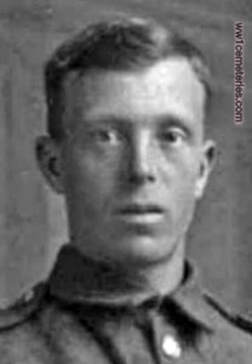
30159 Private
Thomas Walker
16th Bn. Lancashire Fusiliers
4th November 1918.
Row B. 21.
Thomas Walker
16th Bn. Lancashire Fusiliers
4th November 1918.
Row B. 21.

